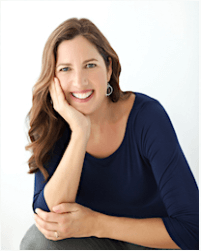
As a longtime integrative doctor and author of four books, most recently BodyWise: Discovering Your Body Intelligence for Lifelong Health and Healing, Esalen faculty Rachel Carlton Abrams assists patients with anxiety and sleep and more during these turbulent times.
Her upcoming workshop, September 25-27, at Esalen, explores how to access body wisdom to navigate life in the direction of vitality, joy and contribution.
“Most of us are having wave after wave of emotion—anger and helplessness about COVID-19 as well as police brutality and ongoing systemic racism in the U.S.,” Rachel says, “but we are also experiencing hope about the possibility of real change to racist policies and inequality throughout our society. It feels like we just might be hitting a turning point on racism—one that is long overdue.”
Rachel shares more about accessing our body’s wisdom with Esalen News.
Esalen News: You treat many people. What have you noticed occurring for individuals, especially over the last fews months?
Dr. Rachel Abrams: It’s quite a range, as people have very individual responses and different levels of privilege and comfort during these crises. My friends and patients on the front line of COVID-19 are still extremely stressed and experiencing accumulated fatigue. Just about everyone is in varying degrees of grief, whether you are part of a community hard hit by COVID-19 mortality (urban, elderly, African-American, Latinx, Indigenous) or grieving the loss of the life that was familiar before the pandemic.
People are particularly discouraged by the lack of public health leadership and the consequent large increase in COVID-19 cases, primarily in the South. And obviously even more severe in Brazil and other highly impacted countries that have fewer resources. Even so, some folks (with enough food, housing, money) are actually thriving in the less hurried and stressed environment of sheltering at home. An interesting commentary on our “normal” life.
As an integrative doctor, I am assisting my patients with anxiety and sleep. More than a third of Americans are experiencing clinical levels of anxiety and depression, twice the number before the pandemic, and even more so among teens and young adults. Understanding and accessing body wisdom and using integrative strategies for sleep and mood can be extremely helpful.
What actions can we take when we find ourselves in a state of stress, anxiousness or grief?
I think that the most valuable practice in the current moment is to simply be with what is. We are likely to feel grief, hopelessness, anger, fear, hope, connection and joy all within a day, if not within an hour. There is tremendous upheaval in our external world, and learning to let the feelings come, not to resist them or numb them (with work, the internet, alcohol, drugs or food), is extremely important. And then to let them go, if at all possible.
An emotion exists physiologically for 90 seconds, if we don’t hold onto it with our mind. And there are so many reasons to have intense feelings right now. There couldn’t be a more important time to tune into your body wisdom—to find that deep compass inside yourself to navigate the turbulence. We need to remember that along with the challenges, there is an opportunity for change and transformation within each of us and in our larger society.
If we can ride the waves and find our inner compass, this can be the most important moment of our lives. If we find our inner wisdom and act in accordance with it, literally, miracles are possible. And we are all being called to act in our own particular sphere of love and influence, to bring new levels of equity and connection to our world. Now is the moment.
Jumping off of that, what tools can assist us during this time?
I’m finding meditation or meditative time in nature to be extremely helpful right now in allowing me to recognize my feelings, feel them all the way through and continue to move forward with what needs to be done. Each person has a preferred method for getting grounded, connected and inspired—whether it is prayer, dance, sitting meditation, yoga, walking in nature, or singing.
I have been particularly calmed and healed by trees recently—feeling their deep roots in the nourishment of the earth, their shared underground connections with all of the other trees and fungal mycelia in the vicinity, and their slow and steady growth toward flower and fruit.
The quiet patience and interconnectedness of the trees seems like good medicine for the U.S. and the world right now. Extensive research shows the calming and healing effect of nature on the human animal, even simple things like a potted plant, or a tree outside a window.
I also think that staying active, ideally outside, is vital for moving the activating feelings of anxiety, fear and anger through the body. When you have a stress reaction—fight or flight—responding with some active movement helps the body return to normal, whether it is walking, jogging, dancing, biking or playing a game. I personally love volleyball, and hitting a volleyball—hard—is excellent medicine to release stress and find peace in my soul.
What other things can we do to lean into our center during uncertain times?
I’ve written four books on relationship and sexuality and I believe love, affection and relationship are fundamental to the joy of the human animal. That has never been more important than right now. The U.S. began 2020 as the most physically disconnected generation in history, with historically the lowest rates of neighborliness, dating, marriage and yes, sex. And COVID-19 has intensified our physical isolation.
Affection and friendship help calm our stress and cortisol response, increase our joy and substantially improve our health, including our immune system’s ability to fight off COVID-19. Try in whatever way you can to get affection or socialize safely with your friends and community. Community is vital to maintaining your health, joy and peace at this time. If you don’t have access to people, a pet is also a great way to increase oxytocin and reap the health and wellness benefits of furry affection.

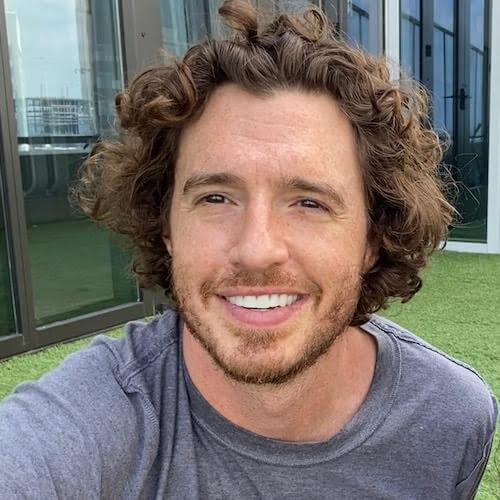
“Remembering to be as self compassionate as I can and praying to the divine that we're all a part of.”
–Aaron
“Prayer, reading, meditation, walking.”
–Karen
“Erratically — which is an ongoing stream of practice to find peace.”
–Charles
“Try on a daily basis to be kind to myself and to realize that making mistakes is a part of the human condition. Learning from our mistakes is a journey. But it starts with compassion and caring. First for oneself.”
–Steve
“Physically: aerobic exercise, volleyball, ice hockey, cycling, sailing. Emotionally: unfortunately I have to work to ‘not care’ about people or situations which may end painfully. Along the lines of ‘attachment is the source of suffering’, so best to avoid it or limit its scope. Sad though because it could also be the source of great joy. Is it worth the risk?“
–Rainer
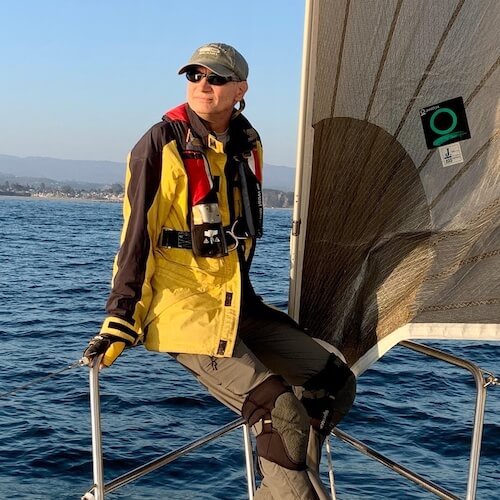

“It's time for my heart to be nurtured on one level yet contained on another. To go easy on me and to allow my feelings to be validated, not judged harshly. On the other hand, to let the heart rule with equanimity and not lead the mind and body around like a master.”
–Suzanne
“I spend time thinking of everything I am grateful for, and I try to develop my ability to express compassion for myself and others without reservation. I take time to do the things I need to do to keep myself healthy and happy. This includes taking experiential workshops, fostering relationships, and participating within groups which have a similar interest to become a more compassionate and fulfilled being.“
–Peter
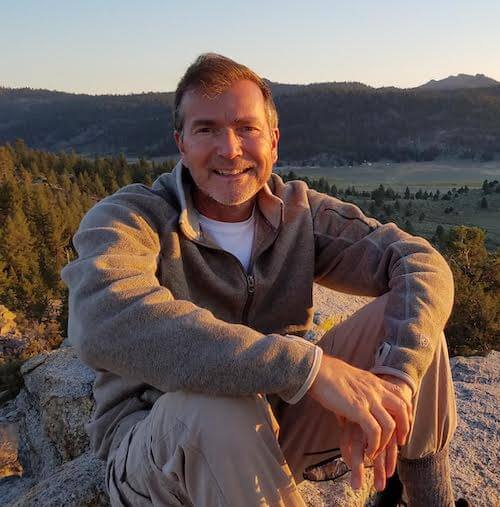
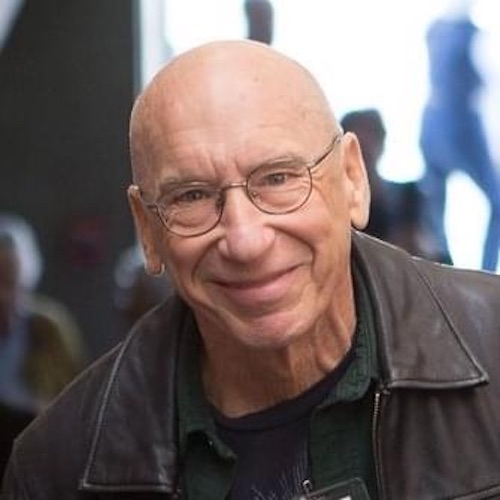
“Self-forgiveness for my own judgments. And oh yeah, coming to Esalen.”
–David B.
“Hmm, this is a tough one! I guess I take care of my heart through fostering relationships with people I feel connected to. Spending quality time with them (whether we're on the phone, through messages/letters, on Zoom, or in-person). Being there for them, listening to them, sharing what's going on with me, my struggles and my successes... like we do in the Esalen weekly Friends of Esalen Zoom sessions!”
–Lori

“I remind myself in many ways of the fact that " Love is all there is!" LOVE is the prize and this one precious life is the stage we get to learn our lessons. I get out into nature, hike, camp, river kayak, fly fish, garden, I create, I dance (not enough!), and I remain grateful for each day, each breath, each moment. Being in the moment, awake, and remembering the gift of life and my feeling of gratitude for all of creation.”
–Steven
“My physical heart by limiting stress and eating a heart-healthy diet. My emotional heart by staying in love with the world and by knowing that all disappointment and loss will pass.“
–David Z.
Today, September 29, is World Heart Day. Strike up a conversation with your own heart and as you feel comfortable, encourage others to do the same. As part of our own transformations and self-care, we sometimes ask for others to illuminate and enliven our hearts or speak our love language.
What if we could do this for ourselves too, even if just for today… or to start a heart practice, forever?

As a longtime integrative doctor and author of four books, most recently BodyWise: Discovering Your Body Intelligence for Lifelong Health and Healing, Esalen faculty Rachel Carlton Abrams assists patients with anxiety and sleep and more during these turbulent times.
Her upcoming workshop, September 25-27, at Esalen, explores how to access body wisdom to navigate life in the direction of vitality, joy and contribution.
“Most of us are having wave after wave of emotion—anger and helplessness about COVID-19 as well as police brutality and ongoing systemic racism in the U.S.,” Rachel says, “but we are also experiencing hope about the possibility of real change to racist policies and inequality throughout our society. It feels like we just might be hitting a turning point on racism—one that is long overdue.”
Rachel shares more about accessing our body’s wisdom with Esalen News.
Esalen News: You treat many people. What have you noticed occurring for individuals, especially over the last fews months?
Dr. Rachel Abrams: It’s quite a range, as people have very individual responses and different levels of privilege and comfort during these crises. My friends and patients on the front line of COVID-19 are still extremely stressed and experiencing accumulated fatigue. Just about everyone is in varying degrees of grief, whether you are part of a community hard hit by COVID-19 mortality (urban, elderly, African-American, Latinx, Indigenous) or grieving the loss of the life that was familiar before the pandemic.
People are particularly discouraged by the lack of public health leadership and the consequent large increase in COVID-19 cases, primarily in the South. And obviously even more severe in Brazil and other highly impacted countries that have fewer resources. Even so, some folks (with enough food, housing, money) are actually thriving in the less hurried and stressed environment of sheltering at home. An interesting commentary on our “normal” life.
As an integrative doctor, I am assisting my patients with anxiety and sleep. More than a third of Americans are experiencing clinical levels of anxiety and depression, twice the number before the pandemic, and even more so among teens and young adults. Understanding and accessing body wisdom and using integrative strategies for sleep and mood can be extremely helpful.
What actions can we take when we find ourselves in a state of stress, anxiousness or grief?
I think that the most valuable practice in the current moment is to simply be with what is. We are likely to feel grief, hopelessness, anger, fear, hope, connection and joy all within a day, if not within an hour. There is tremendous upheaval in our external world, and learning to let the feelings come, not to resist them or numb them (with work, the internet, alcohol, drugs or food), is extremely important. And then to let them go, if at all possible.
An emotion exists physiologically for 90 seconds, if we don’t hold onto it with our mind. And there are so many reasons to have intense feelings right now. There couldn’t be a more important time to tune into your body wisdom—to find that deep compass inside yourself to navigate the turbulence. We need to remember that along with the challenges, there is an opportunity for change and transformation within each of us and in our larger society.
If we can ride the waves and find our inner compass, this can be the most important moment of our lives. If we find our inner wisdom and act in accordance with it, literally, miracles are possible. And we are all being called to act in our own particular sphere of love and influence, to bring new levels of equity and connection to our world. Now is the moment.
Jumping off of that, what tools can assist us during this time?
I’m finding meditation or meditative time in nature to be extremely helpful right now in allowing me to recognize my feelings, feel them all the way through and continue to move forward with what needs to be done. Each person has a preferred method for getting grounded, connected and inspired—whether it is prayer, dance, sitting meditation, yoga, walking in nature, or singing.
I have been particularly calmed and healed by trees recently—feeling their deep roots in the nourishment of the earth, their shared underground connections with all of the other trees and fungal mycelia in the vicinity, and their slow and steady growth toward flower and fruit.
The quiet patience and interconnectedness of the trees seems like good medicine for the U.S. and the world right now. Extensive research shows the calming and healing effect of nature on the human animal, even simple things like a potted plant, or a tree outside a window.
I also think that staying active, ideally outside, is vital for moving the activating feelings of anxiety, fear and anger through the body. When you have a stress reaction—fight or flight—responding with some active movement helps the body return to normal, whether it is walking, jogging, dancing, biking or playing a game. I personally love volleyball, and hitting a volleyball—hard—is excellent medicine to release stress and find peace in my soul.
What other things can we do to lean into our center during uncertain times?
I’ve written four books on relationship and sexuality and I believe love, affection and relationship are fundamental to the joy of the human animal. That has never been more important than right now. The U.S. began 2020 as the most physically disconnected generation in history, with historically the lowest rates of neighborliness, dating, marriage and yes, sex. And COVID-19 has intensified our physical isolation.
Affection and friendship help calm our stress and cortisol response, increase our joy and substantially improve our health, including our immune system’s ability to fight off COVID-19. Try in whatever way you can to get affection or socialize safely with your friends and community. Community is vital to maintaining your health, joy and peace at this time. If you don’t have access to people, a pet is also a great way to increase oxytocin and reap the health and wellness benefits of furry affection.


“Remembering to be as self compassionate as I can and praying to the divine that we're all a part of.”
–Aaron
“Prayer, reading, meditation, walking.”
–Karen
“Erratically — which is an ongoing stream of practice to find peace.”
–Charles
“Try on a daily basis to be kind to myself and to realize that making mistakes is a part of the human condition. Learning from our mistakes is a journey. But it starts with compassion and caring. First for oneself.”
–Steve
“Physically: aerobic exercise, volleyball, ice hockey, cycling, sailing. Emotionally: unfortunately I have to work to ‘not care’ about people or situations which may end painfully. Along the lines of ‘attachment is the source of suffering’, so best to avoid it or limit its scope. Sad though because it could also be the source of great joy. Is it worth the risk?“
–Rainer


“It's time for my heart to be nurtured on one level yet contained on another. To go easy on me and to allow my feelings to be validated, not judged harshly. On the other hand, to let the heart rule with equanimity and not lead the mind and body around like a master.”
–Suzanne
“I spend time thinking of everything I am grateful for, and I try to develop my ability to express compassion for myself and others without reservation. I take time to do the things I need to do to keep myself healthy and happy. This includes taking experiential workshops, fostering relationships, and participating within groups which have a similar interest to become a more compassionate and fulfilled being.“
–Peter


“Self-forgiveness for my own judgments. And oh yeah, coming to Esalen.”
–David B.
“Hmm, this is a tough one! I guess I take care of my heart through fostering relationships with people I feel connected to. Spending quality time with them (whether we're on the phone, through messages/letters, on Zoom, or in-person). Being there for them, listening to them, sharing what's going on with me, my struggles and my successes... like we do in the Esalen weekly Friends of Esalen Zoom sessions!”
–Lori

“I remind myself in many ways of the fact that " Love is all there is!" LOVE is the prize and this one precious life is the stage we get to learn our lessons. I get out into nature, hike, camp, river kayak, fly fish, garden, I create, I dance (not enough!), and I remain grateful for each day, each breath, each moment. Being in the moment, awake, and remembering the gift of life and my feeling of gratitude for all of creation.”
–Steven
“My physical heart by limiting stress and eating a heart-healthy diet. My emotional heart by staying in love with the world and by knowing that all disappointment and loss will pass.“
–David Z.
Today, September 29, is World Heart Day. Strike up a conversation with your own heart and as you feel comfortable, encourage others to do the same. As part of our own transformations and self-care, we sometimes ask for others to illuminate and enliven our hearts or speak our love language.
What if we could do this for ourselves too, even if just for today… or to start a heart practice, forever?

As a longtime integrative doctor and author of four books, most recently BodyWise: Discovering Your Body Intelligence for Lifelong Health and Healing, Esalen faculty Rachel Carlton Abrams assists patients with anxiety and sleep and more during these turbulent times.
Her upcoming workshop, September 25-27, at Esalen, explores how to access body wisdom to navigate life in the direction of vitality, joy and contribution.
“Most of us are having wave after wave of emotion—anger and helplessness about COVID-19 as well as police brutality and ongoing systemic racism in the U.S.,” Rachel says, “but we are also experiencing hope about the possibility of real change to racist policies and inequality throughout our society. It feels like we just might be hitting a turning point on racism—one that is long overdue.”
Rachel shares more about accessing our body’s wisdom with Esalen News.
Esalen News: You treat many people. What have you noticed occurring for individuals, especially over the last fews months?
Dr. Rachel Abrams: It’s quite a range, as people have very individual responses and different levels of privilege and comfort during these crises. My friends and patients on the front line of COVID-19 are still extremely stressed and experiencing accumulated fatigue. Just about everyone is in varying degrees of grief, whether you are part of a community hard hit by COVID-19 mortality (urban, elderly, African-American, Latinx, Indigenous) or grieving the loss of the life that was familiar before the pandemic.
People are particularly discouraged by the lack of public health leadership and the consequent large increase in COVID-19 cases, primarily in the South. And obviously even more severe in Brazil and other highly impacted countries that have fewer resources. Even so, some folks (with enough food, housing, money) are actually thriving in the less hurried and stressed environment of sheltering at home. An interesting commentary on our “normal” life.
As an integrative doctor, I am assisting my patients with anxiety and sleep. More than a third of Americans are experiencing clinical levels of anxiety and depression, twice the number before the pandemic, and even more so among teens and young adults. Understanding and accessing body wisdom and using integrative strategies for sleep and mood can be extremely helpful.
What actions can we take when we find ourselves in a state of stress, anxiousness or grief?
I think that the most valuable practice in the current moment is to simply be with what is. We are likely to feel grief, hopelessness, anger, fear, hope, connection and joy all within a day, if not within an hour. There is tremendous upheaval in our external world, and learning to let the feelings come, not to resist them or numb them (with work, the internet, alcohol, drugs or food), is extremely important. And then to let them go, if at all possible.
An emotion exists physiologically for 90 seconds, if we don’t hold onto it with our mind. And there are so many reasons to have intense feelings right now. There couldn’t be a more important time to tune into your body wisdom—to find that deep compass inside yourself to navigate the turbulence. We need to remember that along with the challenges, there is an opportunity for change and transformation within each of us and in our larger society.
If we can ride the waves and find our inner compass, this can be the most important moment of our lives. If we find our inner wisdom and act in accordance with it, literally, miracles are possible. And we are all being called to act in our own particular sphere of love and influence, to bring new levels of equity and connection to our world. Now is the moment.
Jumping off of that, what tools can assist us during this time?
I’m finding meditation or meditative time in nature to be extremely helpful right now in allowing me to recognize my feelings, feel them all the way through and continue to move forward with what needs to be done. Each person has a preferred method for getting grounded, connected and inspired—whether it is prayer, dance, sitting meditation, yoga, walking in nature, or singing.
I have been particularly calmed and healed by trees recently—feeling their deep roots in the nourishment of the earth, their shared underground connections with all of the other trees and fungal mycelia in the vicinity, and their slow and steady growth toward flower and fruit.
The quiet patience and interconnectedness of the trees seems like good medicine for the U.S. and the world right now. Extensive research shows the calming and healing effect of nature on the human animal, even simple things like a potted plant, or a tree outside a window.
I also think that staying active, ideally outside, is vital for moving the activating feelings of anxiety, fear and anger through the body. When you have a stress reaction—fight or flight—responding with some active movement helps the body return to normal, whether it is walking, jogging, dancing, biking or playing a game. I personally love volleyball, and hitting a volleyball—hard—is excellent medicine to release stress and find peace in my soul.
What other things can we do to lean into our center during uncertain times?
I’ve written four books on relationship and sexuality and I believe love, affection and relationship are fundamental to the joy of the human animal. That has never been more important than right now. The U.S. began 2020 as the most physically disconnected generation in history, with historically the lowest rates of neighborliness, dating, marriage and yes, sex. And COVID-19 has intensified our physical isolation.
Affection and friendship help calm our stress and cortisol response, increase our joy and substantially improve our health, including our immune system’s ability to fight off COVID-19. Try in whatever way you can to get affection or socialize safely with your friends and community. Community is vital to maintaining your health, joy and peace at this time. If you don’t have access to people, a pet is also a great way to increase oxytocin and reap the health and wellness benefits of furry affection.


“Remembering to be as self compassionate as I can and praying to the divine that we're all a part of.”
–Aaron
“Prayer, reading, meditation, walking.”
–Karen
“Erratically — which is an ongoing stream of practice to find peace.”
–Charles
“Try on a daily basis to be kind to myself and to realize that making mistakes is a part of the human condition. Learning from our mistakes is a journey. But it starts with compassion and caring. First for oneself.”
–Steve
“Physically: aerobic exercise, volleyball, ice hockey, cycling, sailing. Emotionally: unfortunately I have to work to ‘not care’ about people or situations which may end painfully. Along the lines of ‘attachment is the source of suffering’, so best to avoid it or limit its scope. Sad though because it could also be the source of great joy. Is it worth the risk?“
–Rainer


“It's time for my heart to be nurtured on one level yet contained on another. To go easy on me and to allow my feelings to be validated, not judged harshly. On the other hand, to let the heart rule with equanimity and not lead the mind and body around like a master.”
–Suzanne
“I spend time thinking of everything I am grateful for, and I try to develop my ability to express compassion for myself and others without reservation. I take time to do the things I need to do to keep myself healthy and happy. This includes taking experiential workshops, fostering relationships, and participating within groups which have a similar interest to become a more compassionate and fulfilled being.“
–Peter


“Self-forgiveness for my own judgments. And oh yeah, coming to Esalen.”
–David B.
“Hmm, this is a tough one! I guess I take care of my heart through fostering relationships with people I feel connected to. Spending quality time with them (whether we're on the phone, through messages/letters, on Zoom, or in-person). Being there for them, listening to them, sharing what's going on with me, my struggles and my successes... like we do in the Esalen weekly Friends of Esalen Zoom sessions!”
–Lori

“I remind myself in many ways of the fact that " Love is all there is!" LOVE is the prize and this one precious life is the stage we get to learn our lessons. I get out into nature, hike, camp, river kayak, fly fish, garden, I create, I dance (not enough!), and I remain grateful for each day, each breath, each moment. Being in the moment, awake, and remembering the gift of life and my feeling of gratitude for all of creation.”
–Steven
“My physical heart by limiting stress and eating a heart-healthy diet. My emotional heart by staying in love with the world and by knowing that all disappointment and loss will pass.“
–David Z.
Today, September 29, is World Heart Day. Strike up a conversation with your own heart and as you feel comfortable, encourage others to do the same. As part of our own transformations and self-care, we sometimes ask for others to illuminate and enliven our hearts or speak our love language.
What if we could do this for ourselves too, even if just for today… or to start a heart practice, forever?